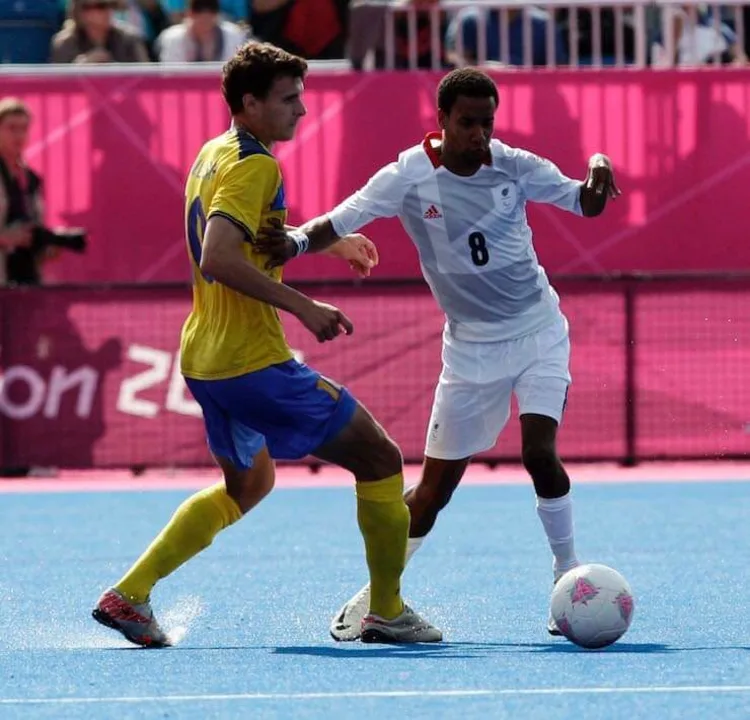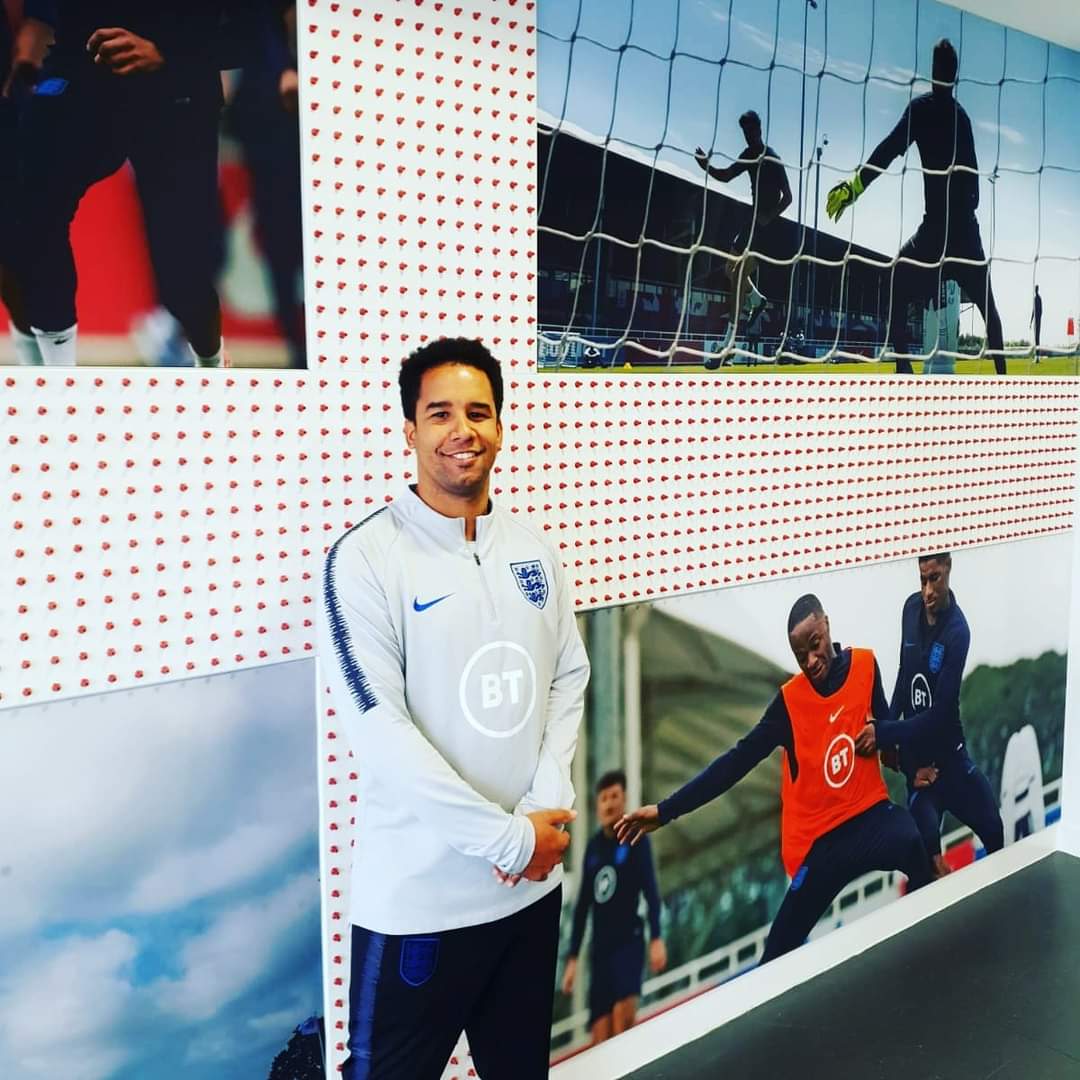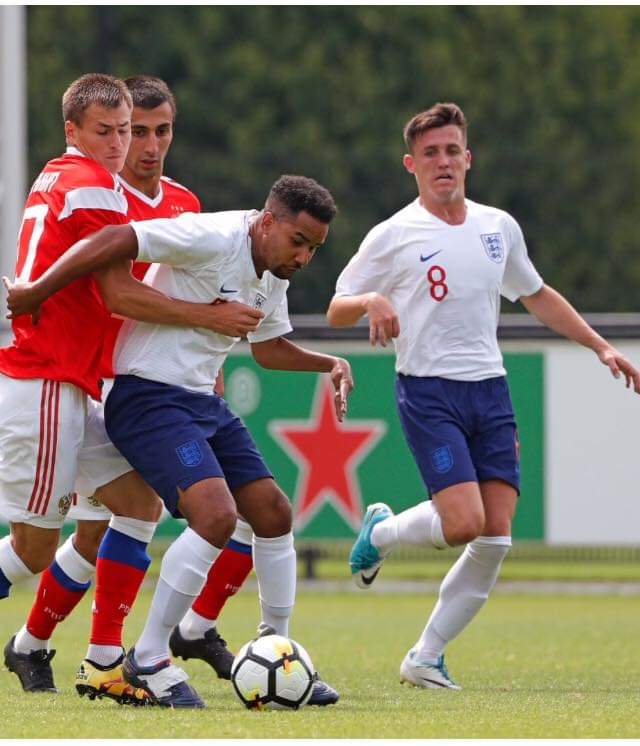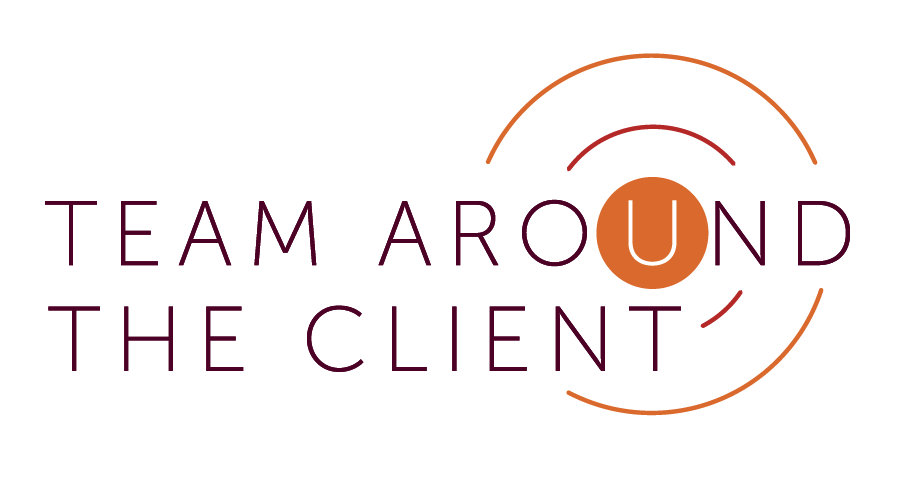Building a support team
Supporting young children with cerebral palsy through sport


Martin is a footballer who played for the England Cerebral Palsy team, as well as being a Saints Ability Development Officer for the Saints Foundation. Martin’s catchphrase is “It’s about showcasing players ability, rather than their disability”.
Martin is Bath born and bred, attending the local Ralph Allen school with our London Clinical Negligence Partner, Ben Lees.
Martin was born with cerebral palsy but still had ambitions of playing football, fully encouraged by his devoted parents and family. This all despite the fact that, due to an undiagnosed hip fracture when a teenager, Martin went on to use a wheelchair for three years and had a hip replacement at the age of 21.
Whilst his brother Scott Sinclair was playing for Plymouth Argyle, Martin was introduced to manager Ian Holloway who offered him a role coaching in the football in the community programme. It was while coaching that Martin found out about Plymouth’s disability team, and from there went on to play cerebral palsy specific football.
Martin's achievements:
Martin was selected to be a part of the Great Britain team that won a bronze medal at the 2010 Paralympic World Cup and a silver medal at the 2012 event.
In 2012, Martin was selected to represent Great Britain at the London 2012 Summer Paralympic Games as part of a twelve-player squad for the seven-a-side football event. Great Britain faced Brazil, the United States and Ukraine in the preliminary stage of the competition, with all matches being held at the Riverbank Arena. Martin and his brother Scott became the first brothers to represent Great Britain at a Paralympic and Olympic Games in the same year.
Martin is now an Ambassador for the charity Cerebral Palsy Sport.
With 50 caps for England’s Cerebral Palsy team and having appeared at two Paralympic Games, Martin took great pride in his and his teammates’ achievements, saying that they wanted "to be role models for young people – that’s what we want to bring as the Cerebral Palsy team.”
Martin is part of a footballing family. His father played semi-professionally, his brother Jake plays for Frome Town and younger brother Scott has played in the English and Scottish Premier Leagues. In 2012 Martin and Scott became the first brothers to represent Great Britain at the Paralympic and Olympic Games. But when it comes to international caps Martin has the edge on his brothers. "I lay my caps on the table I tell them 'I’m the England international,'" he said. "It’s just a bit of banter between brothers."


How Martin continues to work with young people with cerebral palsy:
Martin has now retired as a CP footballer.
Since retirement Martin has gone on to develop projects to enhance opportunities for disabled people in Hampshire at Saints Foundation (Southhampton FC). This includes setting up two talent programmes supporting players into the FA Disability Football Pathway. Off the pitch, he has also created and delivered personal development programmes on resilience and leadership skills as well as creating opportunities into employment.
Martin is also a motivational speaker on inclusion, diversity and wellbeing; talking about his life experiences and his football career. You can watch Martin’s interview in the “Black, England and proud” series here:
What advice would Martin give to young people with cerebral palsy who are interested in sport?
“My first piece of advice would be to strive to be the best version of yourself. It might take days, weeks, months, or even years to figure it out but everyone has their own path and journey.
"I was coming out of my comfort zone to showcase my ability and not my disability, also the boys accepting my disability, and I even scored a hat-trick on my debut with the family watching."
A disability is an attitude, a belief and a mindset and it can stop you in your tracks if you are in a comfort zone because you feel in control. This happened to me when I went for a trial at a local non-disabled grassroot club called Twerton Athletic. I was so nervous meeting the manager for the first time, because I didn't know how he would react when he found out that I had a disability. Would the boys accept me in the group? So many questions were going through my head at the time, but I couldn't answer them until I had my first match with the club. This part always makes me smile because I was coming out of my comfort zone to showcase my ability and not my disability, also the boys accepting my disability, and I even scored a hat-trick on my debut with the family watching.
It proves by learning a new skill or a new challenge in sport you will have mixed emotions related to fear, anxiety, and frequently complaining to get out of the sport, but the rewards will be huge when you pass that barrier with your confidence and self-belief improving. Strength doesn't come from what you can do but overcoming the things you didn't think were possible.
Secondly, to challenge when you or somebody else isn't given the opportunity to fulfil your true potential. We live in a world that is fast paced and constantly moving all the time which tests us mentally and physically. That goes for all people, disabled or not, but as a disabled person you face additional barriers. Imagine being constantly judged by what you can't do rather than what you can do. These barriers must be challenged. Focus on building a community and environment in sport that is inclusive. We must adapt the environment, the method of delivery and the awareness in sport and the conditions to meet the needs of everyone to succeed.
I was able to do this when I was working as a Development Officer for the Saints Foundation at Southampton Football Club, where my role was to develop projects and strategies to enhance opportunities for disabled people in Hampshire. My main responsibilities were to set up and manage two development centres one for the para talent hub aged 7-16 years old with Cerebral Palsy, Hearing impairments and Visual impairments, providing opportunities for players to link into mainstream or specific impairment specific clubs as well as progress them onto the England disability pathway. The second one was a Para development hub for adults to represent the Saints Foundation in regional and national tournaments. This hub also provided personal development plans and links to volunteering, training and employment. It was the first elite disability program in Southampton and an example of taking an opportunity to create an inclusive environment that didn’t exist before.
"We must adapt the environment, the method of delivery and the awareness in sport and the conditions to meet the needs of everyone to succeed."
Removing barriers is my satisfaction and proving to people it didn't matter if I was different. I can still learn and develop in the right way because the hardest person to beat is the person that never gives up. I have set a legacy on the pitch with my football but now its setting a legacy off it.”



